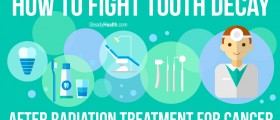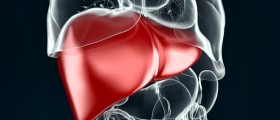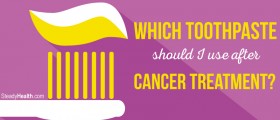
Anorexia, bulimia and binge eating are three eating disorders currently affecting 10 million American citizen. The number of these people is not small, therefore, eating disorders pose a serious problem the medical system should deal with. Most eating disorders occur during adolescence and in young adulthood and they are more common among women. Their negative impact is significant since eating abnormalities these people cherish are detrimental for various organs and organ system in the body and in some case may be even a cause of lethal outcome.
Dental Issues Related to Eating Disorders
Most of us are familiar with the fact that each of the aforementioned eating disorders deprives body of most of the essential minerals, vitamins, proteins as well as other nutrients. Since these are not taken on a regular basis different organs and organs system eventually suffer damage and symptoms and signs of such damage soon start to occur. For example, one may dramatically lose weight within short period of time. He/she may also lose his/her hair, suffer from digestion issues such as constipation or diarrhea and in extreme cases lack of nutrients may precipitate heart conditions or sometimes even kidney failure.
Now, when it comes to dental issues these are associated with both, lack of nutrients and specific behavior patients suffering from eating disorders stick to in order to stay slim. Namely, anorexics do not consume sufficient amounts of food and they are known to easily develop vitamin and mineral deficiencies. This is the reason why their body lacks calcium, fluoride and other minerals necessary for maintain health of their bones and teeth. Furthermore, bulimics are prone to purging and they may repeat this action several times per day, each day of the week. In this case there is direct influence of stomach acid onto the teeth of the patients and mucous membrane of the esophagus and the entire oral cavity. So, bulimics are an example how atitudes of a person may influence him/her to find ways to get rid of abnormally consumed food. Apart from induced vomiting these people also regularly use laxatives.
In the majority of cases improper nutrition along with vomiting trigger inflammation of the gums and other soft tissues of the oral cavity. What is more, salivary glands may become swollen, reduce their production which results in dry mouth, sometimes a permanent complications of the disease. The most severe damage, however, is the one caused by stomach acid. The acid is blamed for erosion of dental enamel, making teeth change their color, shape and/or length. Also, teeth become extremely sensitive to hot/cold (thermal sensitivity). This interferes in eating even more, being a cause of discomfort. The lips of these people are red, dry and cracked with noticeable fissures at angles. And finally, repeated vomiting additionally triggers inflammation of the throat and palate.
When it comes to damage to the teeth in such individuals , it is usually in the form of rounding of their teeth accompanied by protrusion of soft and/or amalgam fillings, teeth weakening, decay, crumbling, fracturing and finally, falling out. The risk of the previously mentioned complications is higher in case of additional poor dental hygiene.
In order to prevent at least some of practically inevitable dental complications these people are prone to it is vital to adopt certain measures that may protect the teeth even if vomiting is repeated. The oral cavity should be rinsed with specific preparations containing sodium bicarbonate or magnesium hydroxide immediately after vomiting. Brushing with fluoride toothpaste on a daily basis is a must. Flossing is also integral part of maintaining proper oral hygiene. Severely damage teeth can easily be restored with resins or crowns. Even regular dental check-ups may timely repair damage caused by lack of nutrients and direct impact of stomach acid.
Eating Disorders Risk Factors
First of all, the risk of eating disorders is estimated to be much higher among women, especially teenage girls and young women.
Secondly, age play significant role in the onset of eating disorders. For example, these health issues develop more in teens and people in their early 20s.
Furthermore, it is reported that eating disorders may easily affect family members of individuals who have already developed the condition. Also, the very family may be a reason why a person eventually develops abnormal eating habits. Over-critical parents who push their children into many obligations and expect them to excel in practically all fields should think twice because their actions may initiate the eating issues. People with emotional problems are in general susceptible to eating disorders.
Additionally, eating disorders are highly likely to occur in people who are frequently dieting as well as those who have experienced certain transmissions in their lives such as heading off to college, moving, changes in occupation etc.
And finally, eating disorders seem to be closely connected with certain professions. This is the reason why they are widely spread among television personalities, actors/actresses, ballet dancers and other athletes.

















Your thoughts on this
Loading...